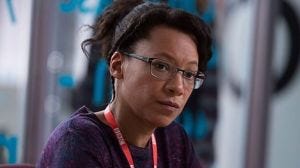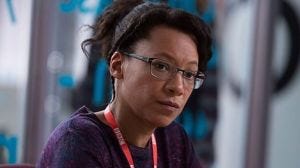Nina Sosanya | Love, Actually
Richard Curtis’ Love, Actually (2003) was for a long time a cultural yardstick of quintessentially ‘British’ cinema; packed full of the nations’ most popular actors of the day purely for the glee of seeing them all together onscreen, it was like some post-watershed Blighty Cinematic Universe knees-up. The casting of the main ensem…
Keep reading with a 7-day free trial
Subscribe to Cinema Year Zero to keep reading this post and get 7 days of free access to the full post archives.





